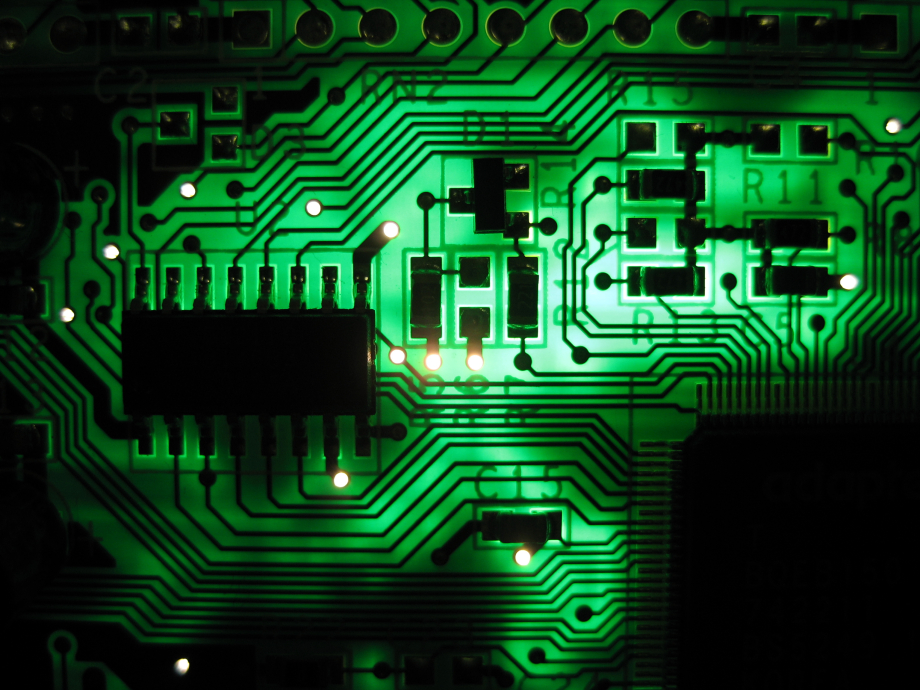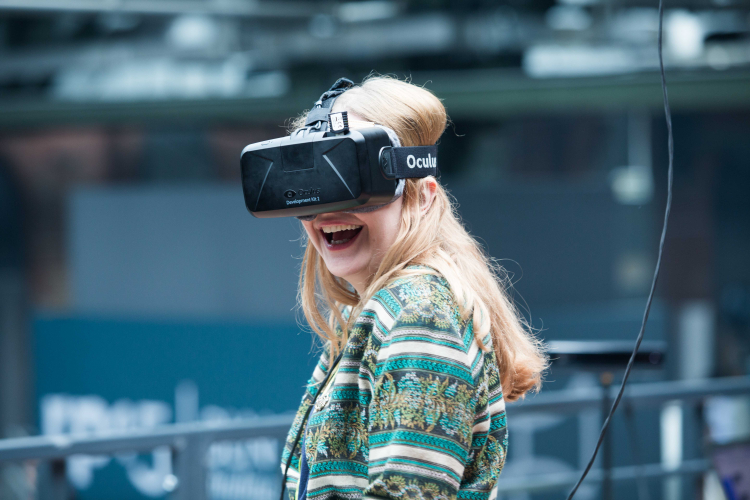Privacy and cybersecurity in a digital society
Over the past thirty years, the Rathenau Instituut has studied the influence of computers and digitalisation on many different areas of society. The pace of innovation is faster than ever and requires new research to understand the impact of these new technologies; at the same time, we are in urgent need of informed political decisions and dialogue across every level of society.

This item discusses digital society, one of the four themes for our 2019-2020 work programme. The other themes are making perfect lives, knowledge for democracy, and knowledge ecosystems.
It has become clear in recent years that digitalisation is far from being a mere series of new gadgets; it has in fact triggered a societal transition that raises new questions about security, online discrimination and exclusion, influence and autonomy, and the power and responsibility of the companies that develop digital technology.
The difference between online and offline is fading. As a result, we increasingly live in a digital society – without knowing precisely what that means. Digital technologies are changing the way teachers teach, how doctors and patients talk to each other, what politicians debate, and how people share news. Behind the scenes, algorithms and artificial intelligence work in ways we often don’t even recognise. Our society is being utterly transformed.
The role of the Rathenau Instituut in discussing digitalisation
How do we ensure that society is able to steer its own course, come up with its own solutions, dare to ask questions and, where necessary, make demands on government and industry? How can digitalisation lead to an inclusive society? And how can it provide opportunities to address societal challenges in such areas as climate change, food safety, healthcare and public administration? These are the questions that we are considering in our ‘Digital society’ programme.
Dialogue on the effects of new technologies
Over the past several decades, the Rathenau Instituut has developed conceptual frameworks for discussing emerging technology in relation to what is important to us in Europe: our values and human rights, which we have seen enshrined worldwide even if they are interpreted locally in different ways. We have investigated the effects – both visible and less visible – on society as a whole, including power imbalances, control over technology, security and justice.
Read more:
- Decent Digitisation: Seventeen experts on an ethical digital society
- A fair share: safeguarding public interests in the sharing and gig economy
- Human rights in the robot age: Challanges arising from the use of robotics, artificial intelligence, and virtual & augmented reality
Over the next two years, we will engage with groups in society to learn what they need to make choices. It goes without saying that we inform politicians, shed light on these developments, and clarify which choices this requires of them. In addition to the national level, we concern ourselves with local politics. We also work with other institutes to inform the European Parliament and other international forums.
The difference between online and offline is fading. As a result, we increasingly live in a digital society – without knowing precisely what that means.
Onderzoek naar een digitale toekomst
The Dutch government has expressed its support for a digital future in which everyone can participate. What does this mean for the existing rules? What does it mean for international agreements and for cooperation between local authorities and how they coordinate with national government? What responsibilities will industry bear? How is responsibility shared in the event of public-public and public-private partnerships? What does the promise of new technology mean for our responsibility as individuals? How do we become technologically adept citizens? And who will help us if we fail? Within the ‘Digital society’ theme, we are conducting new research on three topics:
Intelligente machines in de praktijk
The use of intelligent devices, from physical robots to digital systems and social media, is radically changing many sectors and social practices. Artificial intelligence (AI), which is self-learning and makes decisions based on large quantities of data, is expected to undergo a major leap in development. Besides expectations, this prospect also raises even more questions about privacy, autonomy, security, possible control over algorithms and power imbalances. The biggest challenge of all will be to use intelligent devices to develop responsible social practices.
In the years ahead, the Rathenau Instituut will investigate how some of these practices – including healthcare, education, energy supply, policing and the administration of justice – may change as a result of new digital technologies. We want to offer political officials, professionals and the public courses of action that will allow them to influence new developments based on public values.
What does the promise of new technology mean for our responsibility as individuals?
Immersed in digital technology
We tend to see computers as a screen and keyboard that give us access to the digital world through our fingers and eyes. New technologies, however, are changing the way we interact with computers and the (digital) world. People already log in to their smartphone by fingerprint or facial recognition. Speech recognition allows us to talk to computers. The voice-based virtual assistant ‘Alexa’ that has been integrated into Amazon’s smart loudspeaker has already become a household fixture in the United States. In the Netherlands, Google Assistant is growing steadily in popularity.
We are also seeing the rise of ‘immersive’ technologies, the 3D feature film being only one recent example. Augmented reality (hearables and smart glasses) and virtual reality are forecast to become increasingly important, both at work and in daily life. Laboratories are making rapid progress developing the potential of brain-computer interactions.
The Rathenau Instituut wants to examine the societal significance of these new emerging technologies. We are looking at the situation in the home, but also at the influence that these technologies are having on public space. Will Amazon (through Alexa) tell us what kind of carrots to order from which store? Do we want billboards that address us personally as we walk down the street and tip us off about a nice jacket that’s on sale in the shop round the corner?

Digital security, human rights and international relations
Hang up! Shut it down! Call your bank! The internet makes things easy and convenient for criminals too, who can now break into your house from the comfort of their own homes, wherever they may be. Cybersecurity is one of the issues defining global relations and many also now see it as the driver of economic growth. The big American and Chinese tech companies have already redefined themselves as AI firms, organisations that possess vast quantities of data and are capable of making high-level decisions based on that data.
AI is also increasingly regarded as the key to future military power. The strategic awareness that a global AI race is under way may well result in ‘AI nationalism’, a new form of geopolitics in which countries strive to set up national champions in AI and block takeovers by foreign firms.
Competition for scientific knowledge and talent is also rising. The fear is that an international AI race will frustrate any adequate global governance of AI. We are monitoring developments at international level, where the United Nations, the Council of Europe, the European Union and other international organisations are pushing to develop frameworks, regulatory measures, privacy arrangements, cybersecurity regulations, consumer rights and standards for a safe Internet of Things. Companies are publishing ethical codes and looking for ways to satisfy their duty of care. We want to understand how democratic decisionmaking can take place in this arena, and how digitalisation can be used to achieve common goals.